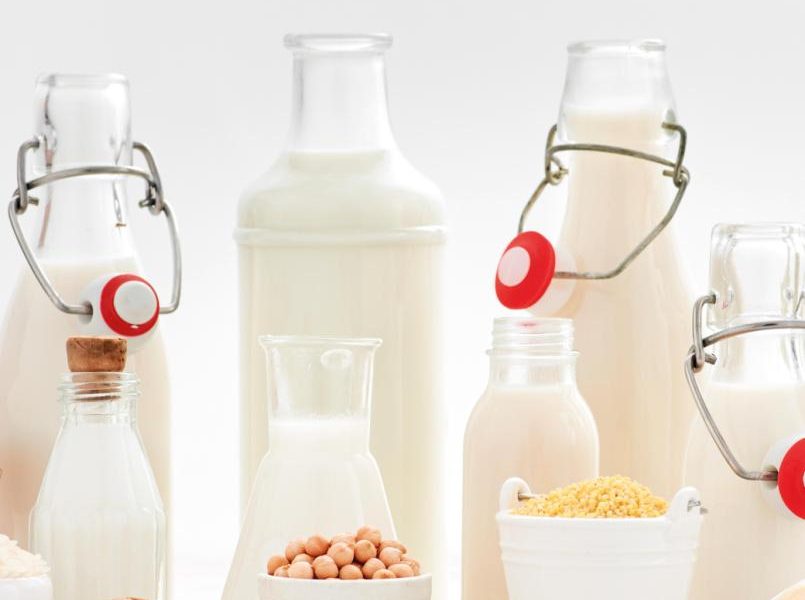-
Hemp milk Don’t worry – while this is made from the seeds of the cannabis plant, it doesn’t contain the psychoactive component of marijuana. “One of the primary benefits of hemp milk is that it has a higher omega 3 content compared to milk made from most other nuts and seeds,” says Shona. “Hemp seeds are also a great source of magnesium – a mineral that has many vital roles in our body, including making energy from our food and supporting our bones.”
-
Cashew milk These nuts are a good source of several minerals, as Shona explains. “These include copper, which helps to maintain our hair pigmentation and manganese, which has antioxidant activity. Cashew milk can be naturally creamier than other alternatives, which can make it a nicer replacement for dairy than other types. Aim to avoid the sweetened versions and remember that it only contains a small amount of protein and calcium compared to normal milk, so it can’t be counted as a good source of these nutrients.”
-
Almond milk Similar in many ways to hemp and cashew milk, this is a great choice. “Almonds are a good source of minerals, including magnesium, and are also a better source of calcium than many other nuts and seeds,” Shona tells us. “They’re also rich in biotin, a vitamin vital for healthy skin and hair. Unsweetened almond milk is low in calories (containing as little as 14 calories per 100ml, compared to around 48 cals in normal semi-skimmed milk) and very low in carbohydrates, so it can be a good choice if you’re looking to lose weight.”
-
Rice milk “I don’t often recommend rice milk,” states Shona. “Even the unsweetened versions are much higher in carbohydrates and sugars than most other milk alternatives, containing up to 11 grams of carbs per 100ml, versus less than two grams in unsweetened nut milks. This is fine if you’ve just worked out, but it’s not ideal for most people as a staple in their diet. Furthermore, as rice milks are often made with refined white rice, they can be a poorer source of vitamins and minerals than other milk alternatives.”
-
Oat milk Oat milk is another good alternative – although if you’re avoiding gluten, be sure to check the ingredients first for possible cross-contamination. “As it’s made from one grain, it’s higher in carbohydrates than nut milks, but not as high as rice milk,” says Shona. “One of the specific benefits of oats is that they contain a type of fibre called beta glucan, which has been found to help maintain healthy cholesterol levels. It has a natural creamy consistency and sweet taste without the need for added sugar or other additives, and, like almonds, oats are high in biotin and manganese.”
-
Soya milk “I don’t generally recommend soya milk as a staple alternative to cow’s milk,” Shona tells us. “Soya can have some health benefits – it contains good levels of protein, fibre, lecithin (which helps us to digest fats), some B vitamins and vitamin E. However, high amounts of soya can disrupt hormone levels in some individuals due to its phytoestrogen content (plant compounds similar to oestrogen) – and it’s even been found to be detrimental to fertility in both men and women. It can also have a ‘goitrogenic’ effect in large quantities, which means that it can influence the activity of the thyroid gland which controls our metabolism. While neither of these problems are likely to be an issue if you’re just having the odd bit in a cup of tea, it could be a worry if you’re getting through several cartons a week.”
-
Coconut milk “Coconut is rich in medium-chain fatty acids, which are fats that are more easily converted into energy by our body compared to other fats, and also have natural anti-bacterial properties. The types of coconut milk found in cartons (which are generally diluted versions of ‘real’ coconut milk) are also fairly low in carbohydrates and calories, making them similar to nut milks. It usually has a mildly coconut flavour, too.”
Show your inbox some love
Get a weekly digest of Health & Wellbeing emailed direct to you.




















